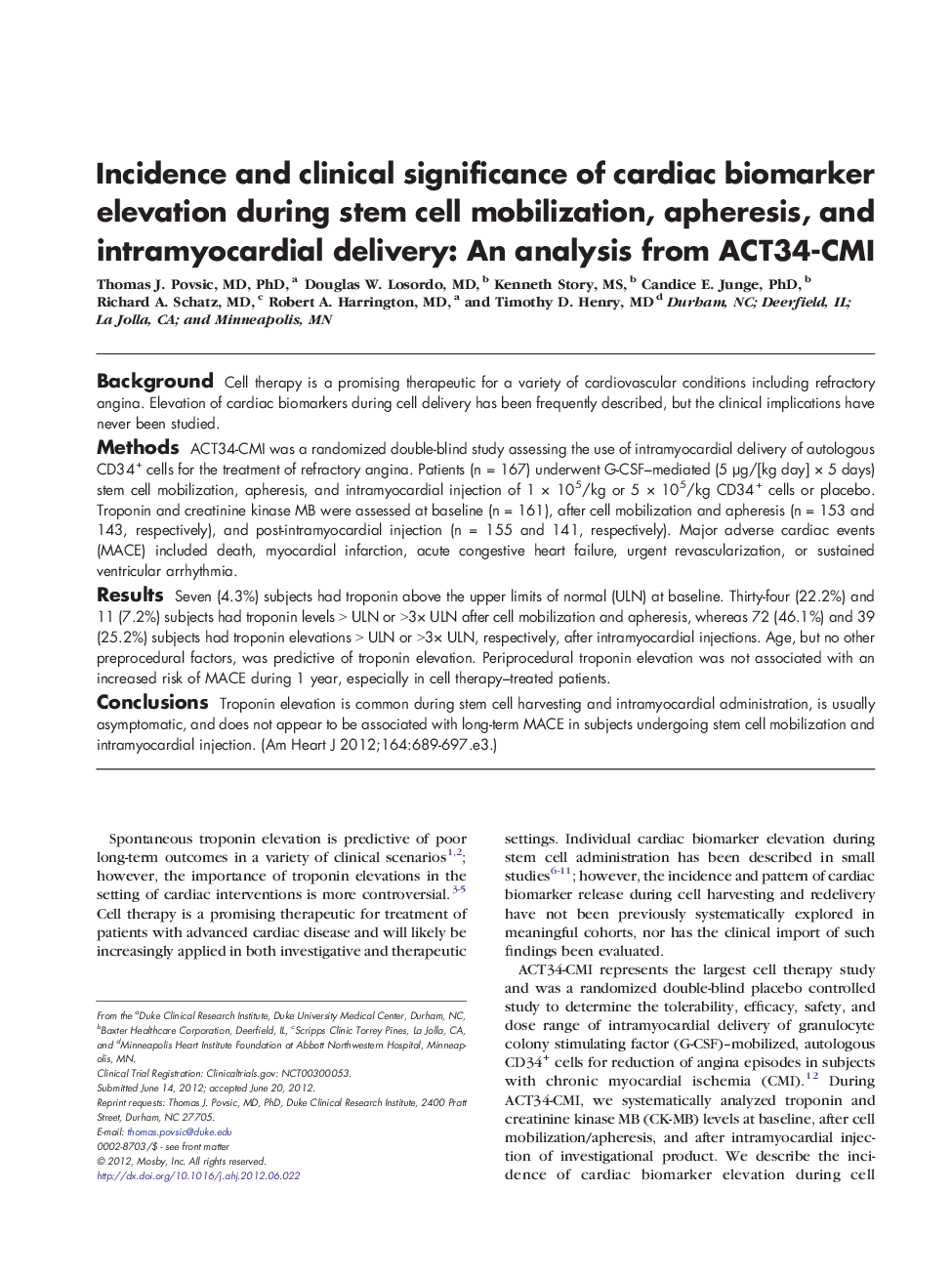| Article ID | Journal | Published Year | Pages | File Type |
|---|---|---|---|---|
| 5927890 | American Heart Journal | 2012 | 12 Pages |
BackgroundCell therapy is a promising therapeutic for a variety of cardiovascular conditions including refractory angina. Elevation of cardiac biomarkers during cell delivery has been frequently described, but the clinical implications have never been studied.MethodsACT34-CMI was a randomized double-blind study assessing the use of intramyocardial delivery of autologous CD34+ cells for the treatment of refractory angina. Patients (n = 167) underwent G-CSF-mediated (5 μg/[kg day] à 5 days) stem cell mobilization, apheresis, and intramyocardial injection of 1 à 105/kg or 5 à 105/kg CD34+ cells or placebo. Troponin and creatinine kinase MB were assessed at baseline (n = 161), after cell mobilization and apheresis (n = 153 and 143, respectively), and post-intramyocardial injection (n = 155 and 141, respectively). Major adverse cardiac events (MACE) included death, myocardial infarction, acute congestive heart failure, urgent revascularization, or sustained ventricular arrhythmia.ResultsSeven (4.3%) subjects had troponin above the upper limits of normal (ULN) at baseline. Thirty-four (22.2%) and 11 (7.2%) subjects had troponin levels > ULN or >3à ULN after cell mobilization and apheresis, whereas 72 (46.1%) and 39 (25.2%) subjects had troponin elevations > ULN or >3à ULN, respectively, after intramyocardial injections. Age, but no other preprocedural factors, was predictive of troponin elevation. Periprocedural troponin elevation was not associated with an increased risk of MACE during 1 year, especially in cell therapy-treated patients.ConclusionsTroponin elevation is common during stem cell harvesting and intramyocardial administration, is usually asymptomatic, and does not appear to be associated with long-term MACE in subjects undergoing stem cell mobilization and intramyocardial injection.
